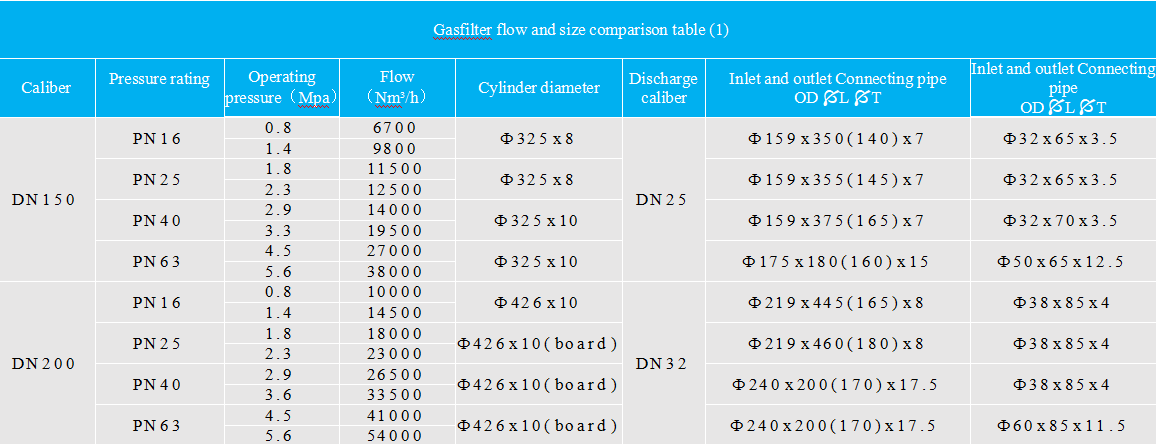
Nov . 09, 2024 14:25
Back to list
Natural Gas Filtration and Separation Technologies for Efficiency and Purity
Understanding Natural Gas Filter Separators Essential Components for Gas Processing
In the realm of natural gas processing, filter separators play a crucial role in ensuring the quality and purity of the gas that will eventually reach consumers. As natural gas is extracted from the earth, it often contains various impurities and liquids such as water, oil, and sand. These contaminants need to be removed to meet industry standards and ensure the efficient operation of downstream equipment. This is where natural gas filter separators come into play.
What is a Natural Gas Filter Separator?
A natural gas filter separator is a piece of equipment designed to remove both solid and liquid contaminants from natural gas. It integrates the functions of filtration and separation, making it an efficient solution for gas processing facilities. The primary objective of a filter separator is to deliver clean, dry, and contaminant-free gas, protecting downstream equipment like compressors, turbines, and pipelines from potential damage.
How Do Filter Separators Work?
The operation of a natural gas filter separator can be understood in a few key steps
1. Inlet Design Natural gas enters the filter separator through a properly designed inlet. This design creates a controlled flow path that helps to settle heavier particles and liquids by gravity.
2. Filtration The gas then passes through a filtration medium, which could be a mesh filter or various types of filter cartridges. This stage is critical for removing solid particles, such as dust, rust, and sand, which can cause abrasive wear and tear on downstream equipment.
3. Separation After filtration, the gas continues its journey to the separation chamber. Here, due to gravity, the heavier liquid components like water and oil settle at the bottom. This chamber is specially designed to facilitate the separation of different phases.
4. Discharge Once the separation occurs, the separated liquids are collected for removal or treatment, while the clean gas continues on to the next stage of processing or transportation.
natural gas filter separator

5. Maintenance and Efficiency Modern filter separators often come equipped with indicators for differential pressure, helping operators monitor the filter's performance and effectiveness. Regular maintenance is crucial, as clogged filters can lead to inefficiencies and increased operational costs.
Importance of Filter Separators in Natural Gas Processing
Filter separators are pivotal for several reasons
- Efficiency By removing contaminants effectively, filter separators enhance the operational efficiency of compressors and other equipment. This not only prolongs the lifespan of machinery but also minimizes downtime and potential failures.
- Regulatory Compliance Natural gas must meet specific purity and quality standards before being transported or sold. Filter separators help gas producers adhere to these regulations, avoiding fines and ensuring the continued operation of their facilities.
- Environmental Protection Effective separation of liquids and solids prevents harmful substances from entering the environment. This is crucial for preserving ecosystems and complying with environmental regulations.
- Safety Clean gas reduces the risks of accidents or equipment malfunctions, ensuring safer operations within processing plants.
Conclusion
Natural gas filter separators are indispensable components of the gas processing industry. By effectively filtering and separating contaminants from natural gas, they ensure the delivery of high-quality energy while protecting equipment, supporting regulatory compliance, and fostering environmental stewardship. As the demand for clean energy continues to rise, the importance of efficient gas processing systems, including advanced filter separator technology, will only become more pronounced in maintaining the integrity and sustainability of natural gas resources.
Latest news
-
Safety Valve Spring-Loaded Design Overpressure ProtectionNewsJul.25,2025
-
Precision Voltage Regulator AC5 Accuracy Grade PerformanceNewsJul.25,2025
-
Natural Gas Pressure Regulating Skid Industrial Pipeline ApplicationsNewsJul.25,2025
-
Natural Gas Filter Stainless Steel Mesh Element DesignNewsJul.25,2025
-
Gas Pressure Regulator Valve Direct-Acting Spring-Loaded DesignNewsJul.25,2025
-
Decompression Equipment Multi-Stage Heat Exchange System DesignNewsJul.25,2025

